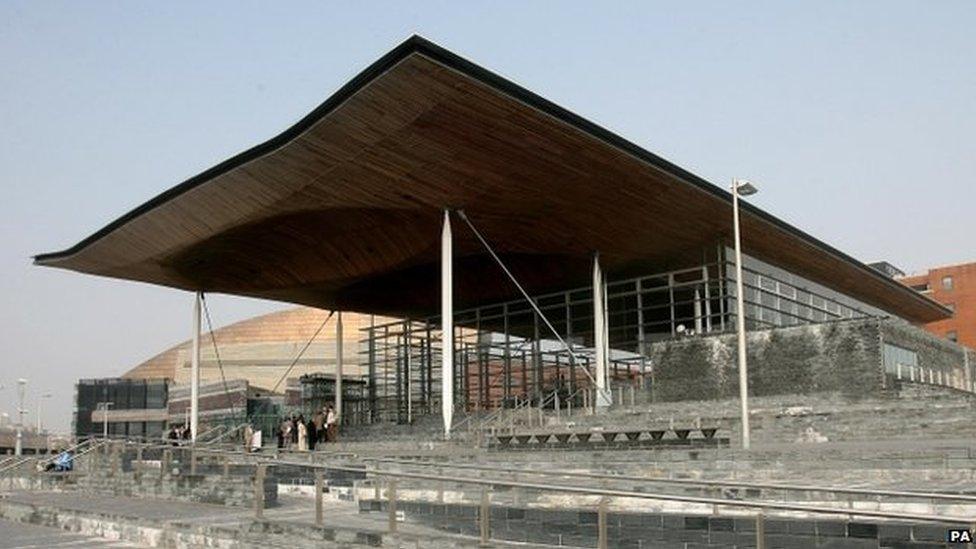AMs back renaming Welsh Assembly to Senedd Cymru and Welsh Parliament
- Published
- comments
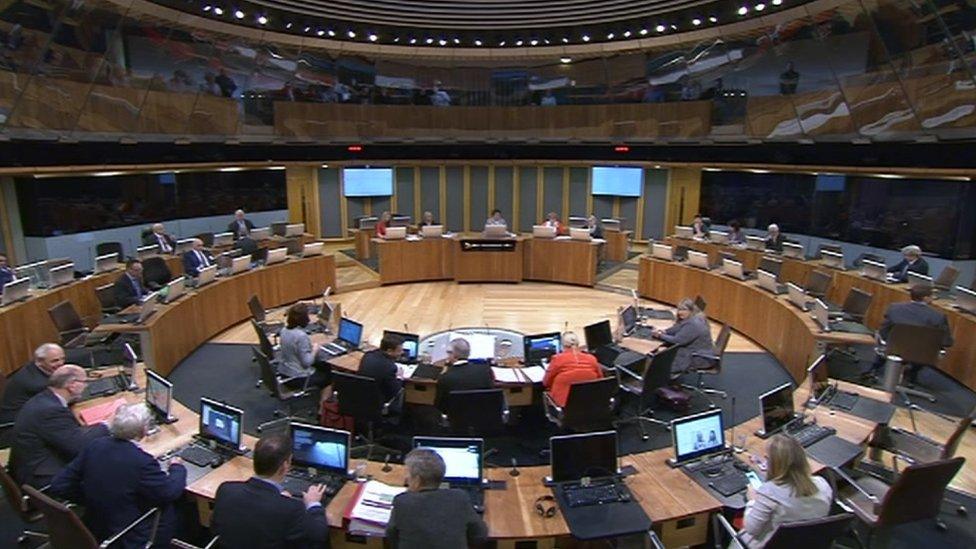
AMs have voted to change the name of the National Assembly for Wales
AMs have voted to rename the Welsh Assembly, calling it both Senedd Cymru and the Welsh Parliament.
A majority backed former first minister Carwyn Jones' proposals for a bilingual name and rejected plans for a Welsh-only title, Senedd.
Plaid Cymru's Rhun ap Iorwerth said the word Senedd transcends language barriers, but Mr Jones said it was not clear everyone understood it.
Presiding Officer Elin Jones said she was disappointed with the result.
A total of 43 AMs backed Mr Jones' changes to the Senedd and Elections Bill, with 13 against.
A vote backing a Welsh-only name was defeated by 38 AMs, with 16 in support and one abstention.
It is not the final stage in the passage of Elin Jones' bill through the assembly, but Wednesday's votes were a key part of the process.
AMs also reiterated their support for votes for 16 and 17-year-olds in assembly elections.
A Brexit Party-bid backed by some Conservative AMs to scrap the plans failed to pass, with 11 votes for and 45 against.
The assembly is set to get a new name - but what do people think it should it be?
After the bill passes the new name will come into force in May 2020, with changes to the voting age implemented at the next assembly elections in 2021.
The debate was opened by Mr ap Iorwerth who tabled an amendment, supported by Labour's Hefin David and Mike Hedges, backing a Welsh-only name.
The Plaid AM for Ynys Mon said: "Some words transcend language barriers. There are some words in particular that in practical and usage terms genuinely belong to us all.
"Senedd is one of those words. A word that is of Wales; a word rooted in the Welsh language; a word that is bilingual in its application.
"What better application for such an inclusive word than as the official name of our national democratic and representative institution."
Sian Gwenllian, Plaid AM for Arfon, highlighted Welsh words already used widely in Welsh English, saying: "Let's cwtch up today, let's not be twp, let's say together there's a parliament for Wales to be known as Senedd."
Bridgend AM Carwyn Jones' proposals were supported by Welsh Government ministers.
He said he would use the term Senedd himself, but his amendments made it clear in law that Senedd Cymru meant the Welsh Parliament.
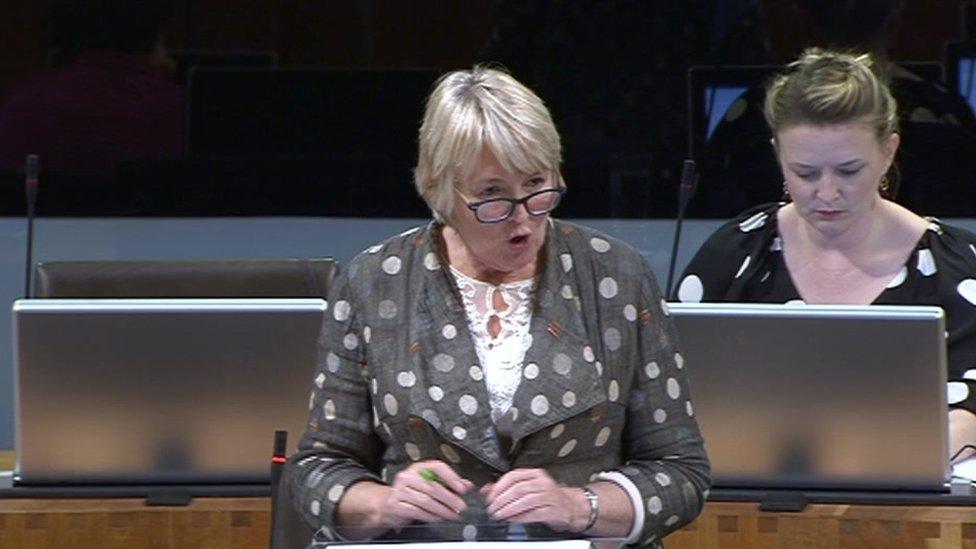
Sian Gwenllian: "Let's cwtch up today, let's not be twp"
Mr Jones said it was "true to say Senedd is becoming more apparent among the public".
"But I don't think we are there yet - that everyone understands that Senedd means parliament."
"Maybe in years to come Senedd will be very common indeed," the Labour politician added.
"But in the mean time I think it is important that people understand that this is the Senedd, but it is also the Welsh Parliament."
'Magnificent world'
The former first minister was backed by David Melding, Conservative AM for South Wales Central.
He said a bilingual name would celebrate "both the magnificent worlds we live in, in the English speaking world and Welsh speaking world - that combination makes Wales a most exceptional place".
Senedd is already the name of the building that houses the assembly debating chamber, and is the Welsh word for parliament.
The original bill stated that Senedd would be the new name, but that the assembly "may also be known" as the Welsh Parliament. Ministers had concerns this would be confusing.
Mr ap Iorwerth's amendment, which did not pass, tried to make the law clearer in stating the name of the institution would be Senedd.
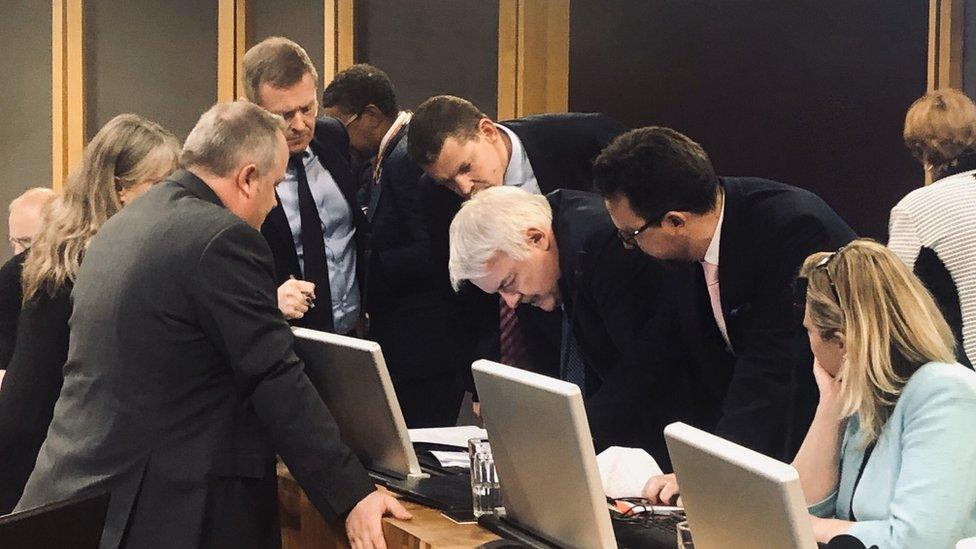
Carwyn Jones called for a short break for discussions after one of his amendments - renaming AMs Members of Senedd Cymru - failed to pass
Elin Jones said: "It is disappointing that the pre-eminence of the name Senedd has been defeated by a majority of assembly members.
"The term Senedd is both Welsh and international at the same time, and its simplicity has already secured its place in every day use."
Osian Rhys, from Cymdeithas yr Iaith, said it was "clear from the comments in the debate today that there is a lot of support across the parties for a Welsh-only name, 'Senedd'".
AMs to become members of the Senedd?
Proposals to call AMs members of Senedd Cymru (MSCs) or members of the Welsh Parliament (MWPs) were both rejected by assembly members - the former by a close vote.
It means that, as things stand, AMs will be renamed members of the Senedd as per the bill's original proposal.
Mr Jones had proposed that members be called MSCs, while Blaenau Gwent Labour AM Alun Davies had backed MWPs.
Both were voted down. Mr Jones' amendment failed to pass with 25 votes for, 26 against, and four abstentions.
The votes meant that Mr Jones' other successful changes left inconsistencies in the bill which will need to be changed at the next stage.
First Minister Mark Drakeford said it was a "marathon session" by the assembly with a "great deal" of interest from AMs.
He admitted there was a "little bit more work to do in refining the name of assembly members in future".

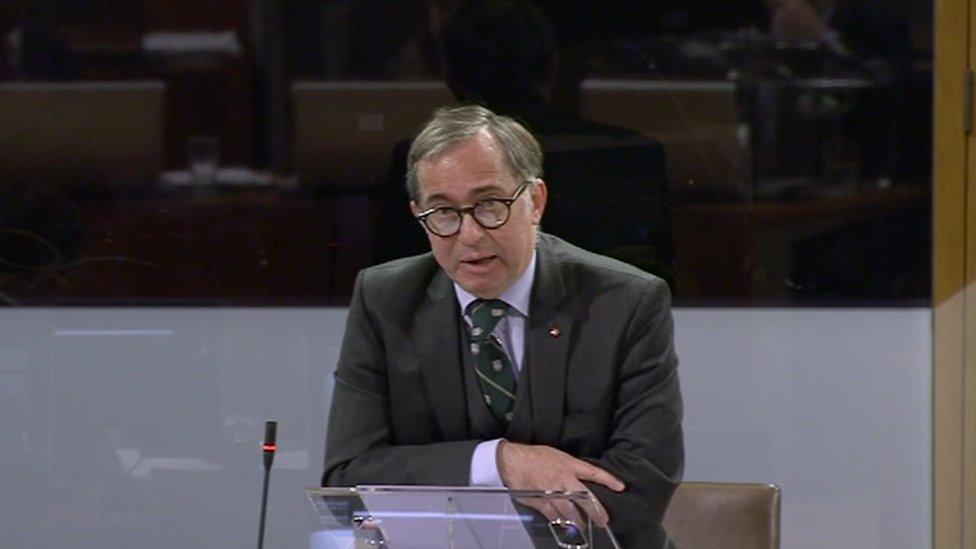
David Melding of the Conservatives backed Carwyn Jones' proposals
Analysis by Felicity Evans, BBC Wales political editor
Watching this debate has been like going to a very intense game of bingo - trying to keeping track of more than 100 votes on hundreds of amendments to an already complex piece of legislation.
Reforming the way our national parliament works is not easy or simple.
Plenty of the amendments were about the new official title of the assembly and that appears to have been settled, but the new title for AMs remains up the air, I'm told.
The other matters were varied, everything from votes at 16 (which has had a lot of attention already) to giving voting rights to foreign nationals resident in Wales (which hasn't).
That led to an accusation that Welsh Government was being "slipshod" and avoiding scrutiny by introducing the measure via an amendment.
Though it's worth remembering that EU citizens are already eligible to vote in Welsh Assembly elections.
But this was only stage two of legislative progress. Even after a mammoth night, there's still some way to go.

Foreign nationals to be given the right to vote in Wales
AMs also passed measures to give foreign nationals residing legally in Wales the vote in assembly elections - 37 for, 16 against.
Jeremy Miles, counsel general, told AMs: "Now is the right time for this institution to signal its commitment to people living in Wales regardless of where they were born."
Mr Melding criticised the way the "major change" was introduced, "piggybacking" on an Assembly Commission bill. Mark Reckless said it was "impossible to avoid the conclusion that it is for narrow partisan reasons".
AMs also agreed measures to stop councillors from being assembly members, and to disqualify registered sex offenders from joining the institution.
Conservative AM Angela Burns criticised the amount of time given over to debating the name, comparing it with 45 minutes in the chamber on Tuesday to discuss maternity services in Cwm Taf.
"I'm deeply uncomfortable by this imbalance," she tweeted.
- Published7 October 2019
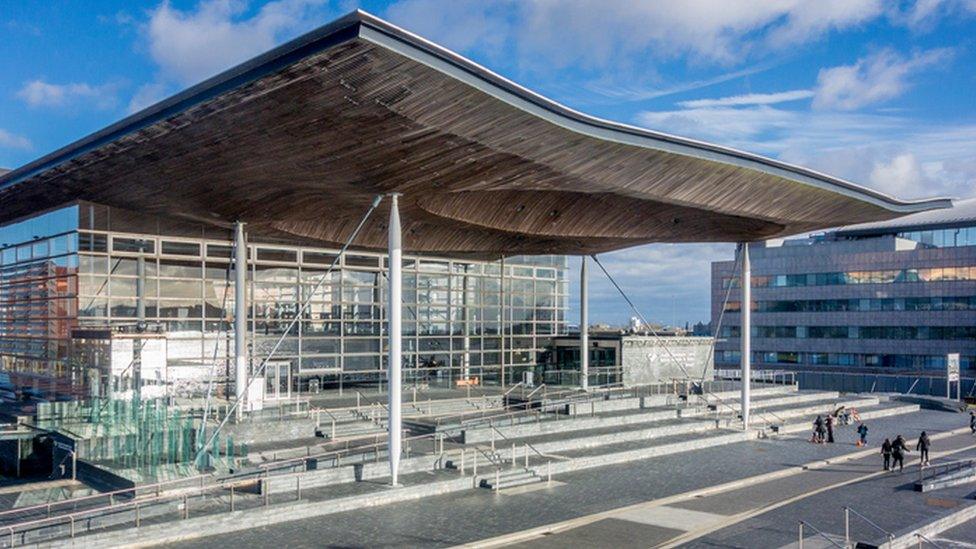
- Published12 November 2018
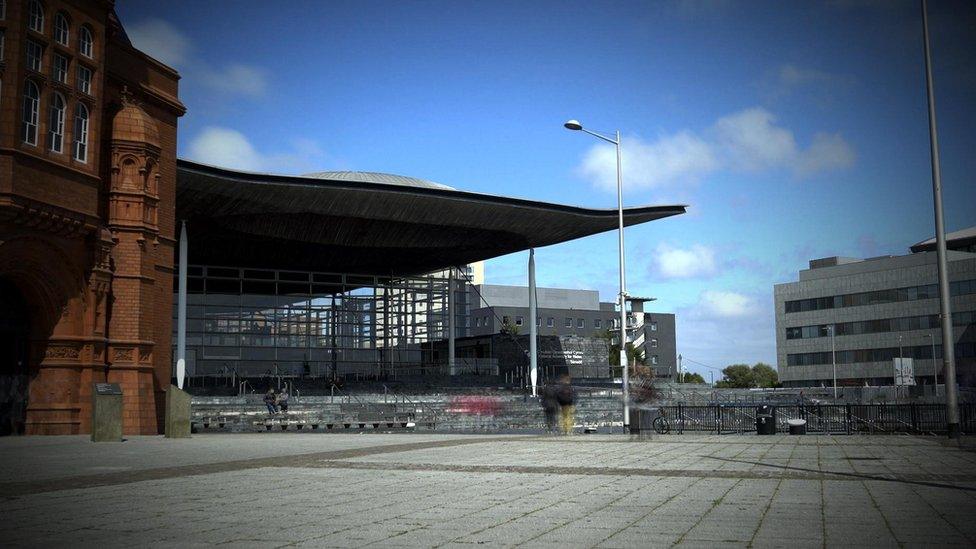
- Published6 February 2019
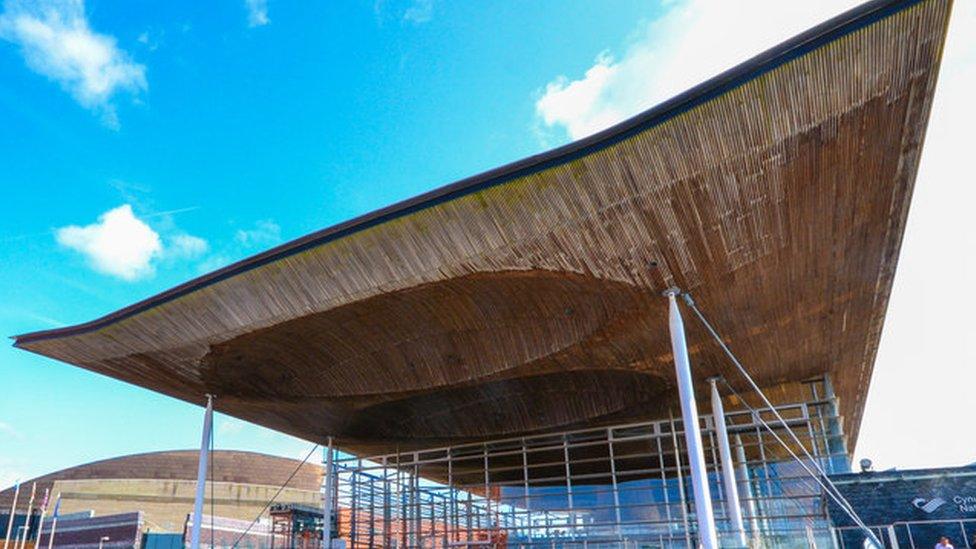
- Published5 July 2016
